Soviet cinema has left an indelible mark on the world of film with its unique storytelling, deep character development, and often poignant social commentary. This collection showcases ten legendary Soviet films, each offering a glimpse into the rich tapestry of Soviet life, culture, and history. These films not only provide entertainment but also serve as cultural artifacts, reflecting the era's artistic and political landscape. Whether you're a cinephile or a newcomer to Soviet cinema, this list will enrich your understanding and appreciation of this influential film tradition.
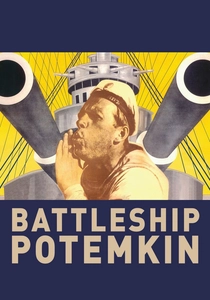
Battleship Potemkin (1925)
Description: A silent film masterpiece by Sergei Eisenstein, this film is renowned for its revolutionary montage techniques and its depiction of the 1905 Russian Revolution. It's a must-watch for its historical significance and cinematic innovation.
Fact: The famous "Odessa Steps" sequence has been widely imitated and referenced in numerous films. The film was banned in several countries due to its revolutionary content.
 Watch Now
Watch Now
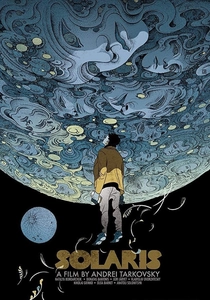
Solaris (1972)
Description: Another Tarkovsky masterpiece, this film delves into the psychological and philosophical implications of space exploration, focusing on a scientist's encounter with his memories on a space station orbiting the planet Solaris.
Fact: The film was inspired by Stanislaw Lem's novel but deviates significantly in its exploration of human consciousness and memory.
 Watch Now
Watch Now
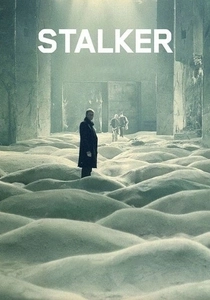
Stalker (1979)
Description: Directed by Andrei Tarkovsky, this film explores themes of faith, technology, and human nature through a journey into the mysterious "Zone." Its philosophical depth and visual style make it a cornerstone of Soviet cinema.
Fact: The film was shot in Estonia, and the Zone was created using abandoned industrial sites. Tarkovsky's vision for the film led to numerous conflicts with Soviet censors.
 Watch Now
Watch Now
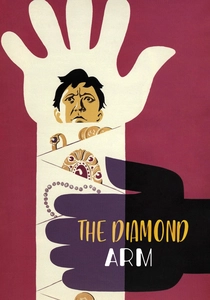
The Diamond Arm (1969)
Description: A comedy about a man who unwittingly becomes involved in a smuggling operation, this film is known for its humor, memorable quotes, and the portrayal of everyday Soviet life.
Fact: The film's script was written by Leonid Gaidai, who also directed it, and it became one of the highest-grossing Soviet films of all time.
 Watch Now
Watch Now

White Sun of the Desert (1970)
Description: Set in the aftermath of the Russian Civil War, this film combines adventure, comedy, and drama as a Red Army soldier navigates the deserts of Central Asia, encountering bandits and romance.
Fact: It has become a cult classic, with its theme song being one of the most recognized pieces of Soviet music.
 Watch Now
Watch Now
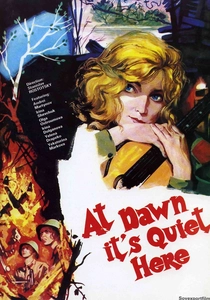
The Dawns Here Are Quiet (1972)
Description: This war drama focuses on a group of female anti-aircraft gunners during World War II, highlighting their bravery and the human cost of war.
Fact: The film was based on a novel by Boris Vasilyev and was remade in 2015, showing its lasting impact on Russian culture.
 Watch Now
Watch Now
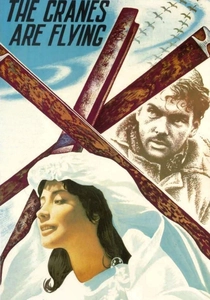
The Cranes Are Flying (1957)
Description: This film captures the emotional turmoil of World War II through the story of a young woman whose fiancé goes to the front. It's celebrated for its emotional depth and the iconic scene where the protagonist runs through a bombed-out city.
Fact: It won the Palme d'Or at the Cannes Film Festival in 1958, making it one of the few Soviet films to achieve such international acclaim.
 30 Days Free
30 Days Free

The Irony of Fate (1976)
Description: A romantic comedy that has become a New Year's Eve tradition in Russia, this film follows a man who, after a night of drinking, ends up in the wrong city and apartment, leading to a series of humorous and touching events.
Fact: It was initially banned from television due to its satirical take on Soviet urban planning but has since become a beloved classic.
 30 Days Free
30 Days Free
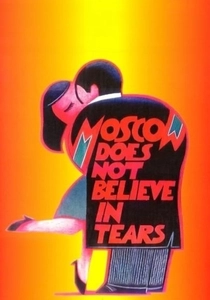
Moscow Does Not Believe in Tears (1980)
Description: This drama spans three decades, following the lives of three women in Moscow, exploring themes of love, ambition, and the changing roles of women in Soviet society.
Fact: It won the Academy Award for Best Foreign Language Film in 1981, highlighting its universal appeal and storytelling prowess.
 30 Days Free
30 Days Free

The Caucasian Chalk Circle (1966)
Description: Based on Brecht's play, this film uses satire to comment on Soviet bureaucracy and justice, telling the story of a peasant girl who adopts an abandoned child during a civil war.
Fact: The film was adapted from a play by Bertolt Brecht, showcasing Soviet cinema's engagement with international literature.
 30 Days Free
30 Days Free









